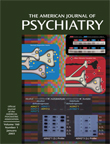Treatment-Resistant Mood Disorders
The recognition of treatment resistance in mood disorders has grown substantially in the last 5 years. Until just recently, how to deal effectively with depressions not remitting or responding to the initial treatment remained largely defined anecdotally by “experts.” This much-needed, timely publication provides a thorough review of the available evidence (including consecutive case series as well as randomized controlled trials) addressing this important and common clinical dilemma. The approach taken is evidence based and pragmatic. Importantly, most chapters provide a distillation of the empirical evidence as well as clinically relevant commentary on the implication of the available evidence for clinical practice.
The intended audience for this book includes clinicians and clinical researchers. Residents will also benefit substantially from this volume. The chapters are generally well written and to the point. Clinicians will find the book of immense practical value in deciding what to do when one or even several treatments do not produce a satisfactory clinical outcome.
After a chapter defining the concept of treatment resistance and a chapter on its economic impact, five chapters discuss the biological basis for treatment resistance (e.g., neuroendocrine, sleep physiological, immunologic, and brain imaging findings). The next six chapters review the evidence for treatment with serotonin and serotonin-norepinephrine reuptake inhibitors, the monoamine oxidase inhibitors, medication combinations, ECT, thyroid augmentation, and psychotherapeutic and psychosocial treatments.
Important subsequent chapters discuss the recognition and management of treatment resistance in special populations (e.g., children and adolescents, the elderly) or special situations (e.g., depression during pregnancy or in the postpartum period, depression caused by general medical conditions). The final chapters discuss ethical issues in conducting research in patients with treatment-resistant mood disorders and provide treatment algorithms for refractory bipolar disorder. Particularly thorough and articulate discussions are presented for depression in the elderly, bipolar depression, and depressions caused by general medical conditions. Any clinician managing treatment-resistant depression will find useful the wide variety of treatment possibilities discussed in this volume.
The book is generally thorough in its discussion of most of the topics and is broadly inclusive in the range of topics. However, I would be remiss if I did not highlight important areas not covered by this text. They include medication adherence, the use of alternative interventions (e.g., acupuncture, St. John’s wort), the psychological/psychosocial basis for treatment resistance, and the long-term management of patients with treatment-resistant mood disorders.
On the other hand, this book does provide a great deal of clinically relevant and valuable information for clinicians and clinical researchers. It summarizes the current state of our knowledge. More than 30 international experts not only detail this knowledge but also provide a clinically informed synthesis of the evidence. This volume is truly a timely and useful contribution.



